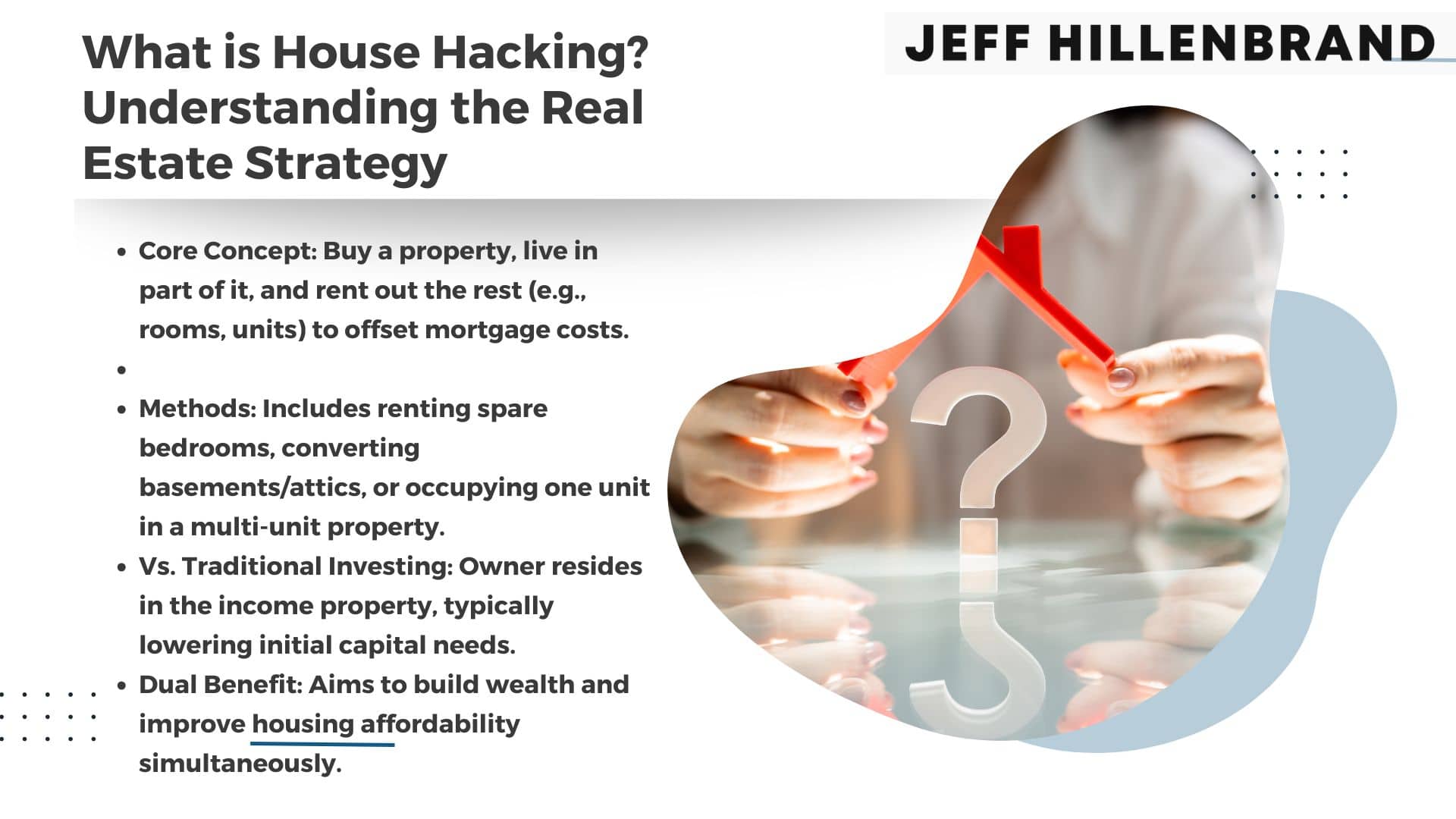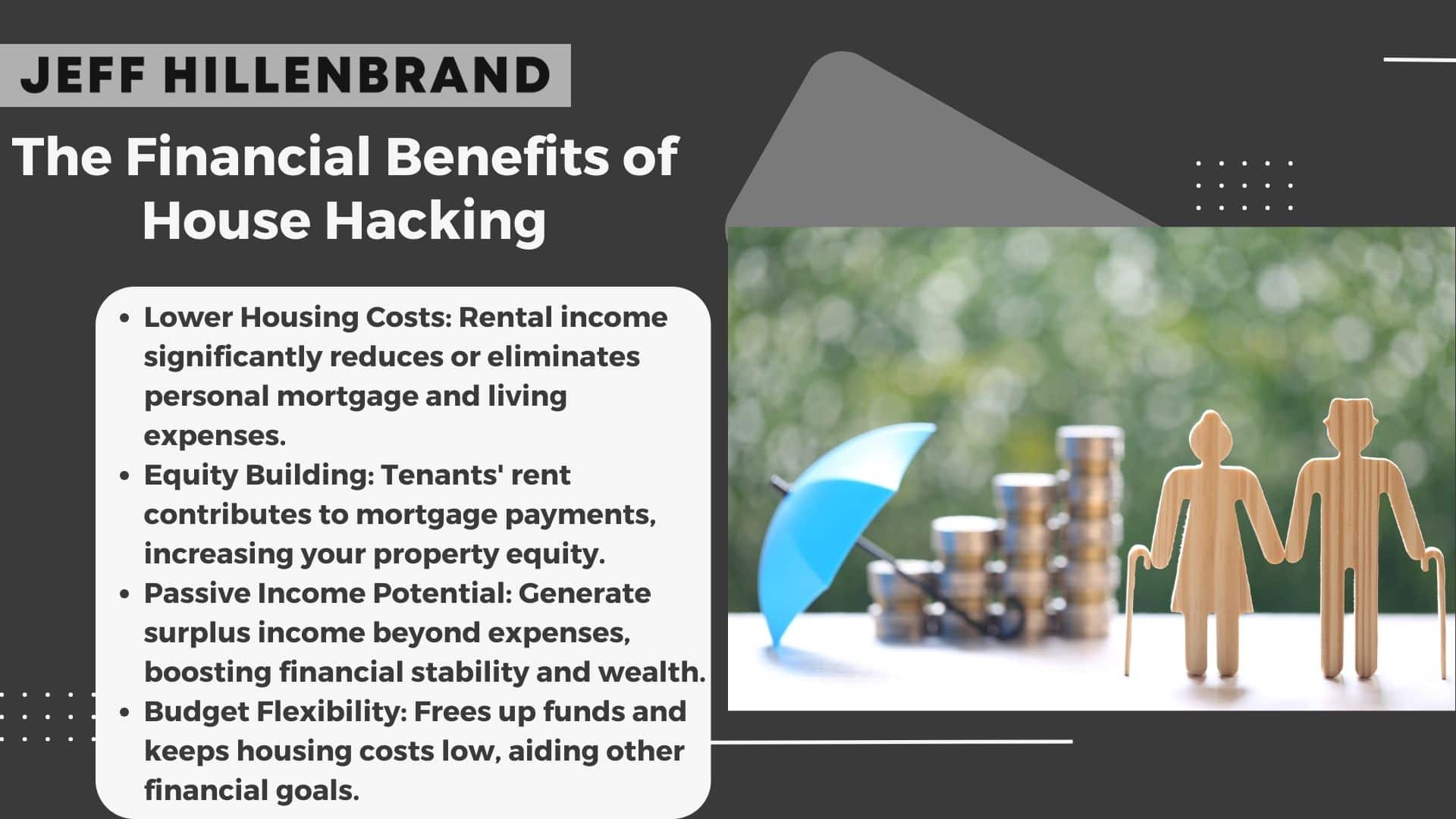
Did you know that nearly 40% of homeowners in the United States are now using some form of real estate investment strategy to offset their mortgage costs? House hacking has emerged as a popular approach, allowing individuals to generate passive income by renting out portions of their primary residence.
This innovative real estate strategy enables homeowners to live in a property while renting out other areas, helping to cover housing expenses. For those in Houston, TX, New Homes Houston Texas offers expert guidance on implementing this approach.
By adopting a house hacking strategy, homeowners can transform their property into a source of income, making home ownership more affordable and potentially lucrative.
Key Takeaways
- House hacking allows homeowners to offset their housing costs by renting out portions of their primary residence.
- This real estate strategy can provide a lower-barrier entry point for aspiring investors.
- Homeowners can generate passive income by renting out areas of their property.
- House hacking can make home ownership more affordable and potentially lucrative.
- New Homes Houston Texas offers expert guidance on implementing house hacking strategies in Houston, TX.
What is House Hacking? Understanding the Real Estate Strategy

As a real estate investing strategy, house hacking offers a unique approach to achieving homeownership and investment goals simultaneously. It involves purchasing a property, using it as a primary residence, and generating rental income from parts of the property.
The Definition and Core Concept
House hacking is defined as a real estate strategy where an individual buys a property, lives in it, and rents out the remaining space to tenants. This can be done by renting out spare bedrooms, converting basements or attics into separate units, or purchasing multi-unit properties and occupying one unit. The rental income generated is used to offset the mortgage payments, helping to build equity in the home.
| House Hacking Strategy | Description | Potential Income |
|---|---|---|
| Renting out spare bedrooms | Living in the property and renting out extra rooms | $500-$1,000 per month |
| Converting basements or attics | Renovating additional spaces into rental units | $1,000-$2,000 per month |
| Multi-unit properties | Buying a multi-unit property and occupying one unit | $1,500-$3,000 per month |
How House Hacking Differs from Traditional Real Estate Investing
Unlike traditional real estate investing, which often requires purchasing separate rental properties, house hacking allows individuals to live in the same property they are using to generate income. This approach reduces the capital requirements typically associated with real estate investing, making it more accessible to those with limited funds. House hacking serves as both a wealth-building strategy and a practical solution to housing affordability.
The Financial Benefits of House Hacking

House hacking presents a compelling opportunity for homeowners to reduce their housing expenses and generate additional income. This real estate strategy involves renting out parts of your property to tenants, which can significantly offset your mortgage payments and other expenses.
Reducing or Eliminating Your Housing Expenses
One of the primary financial advantages of house hacking is the dramatic reduction in personal housing costs. By renting out rooms or units within your property, many successful house hackers achieve completely free living arrangements through rental income.
This approach not only reduces your monthly expenses but also frees up funds that can be redirected toward other investments or financial goals.
Building Equity While Others Pay Your Mortgage
When tenants effectively pay your mortgage through their rent payments, you’re building equity in a valuable asset without depleting your own monthly cash flow.
This strategy allows homeowners to maintain housing expenses well below the recommended 30% of income threshold, creating significant budgetary flexibility. Over time, as your tenants continue to pay down your mortgage, you’ll build substantial equity in your property.
Creating Passive Income Streams
Beyond covering basic housing costs, successful house hacking can generate surplus income that compounds your investment returns over time.
By leveraging rental income, homeowners can create a passive income stream that enhances their financial stability and accelerates wealth building. This approach combines multiple financial benefits, including property appreciation, mortgage principal reduction, and potential tax advantages.
In conclusion, the financial benefits of house hacking are substantial, offering homeowners a unique opportunity to reduce expenses, build equity, and create passive income streams. By understanding and leveraging these advantages, individuals can make informed decisions about their real estate investments and improve their overall financial situation.
Popular House Hacking Strategies for Beginners

For those new to house hacking, several strategies can help you get started in the world of real estate investing. House hacking is a versatile approach that can be tailored to suit different financial goals and comfort levels. Whether you’re looking to minimize your housing expenses or generate additional income, there’s a house hacking strategy that can work for you.
Renting Out Extra Bedrooms in Your Primary Residence
One of the simplest ways to start house hacking is by renting out spare bedrooms in your existing single-family home. This approach requires minimal upfront investment and can provide immediate rental income. By utilizing online platforms to find tenants, you can quickly turn unused space into a revenue stream.
Converting Basements, Attics, or Garages into Rental Units
Converting underutilized spaces like basements, attics, or garages into rental units is another effective house hacking strategy. This approach creates separate living areas that can command higher rents while maintaining privacy for both you and your tenants. With some renovation work, these spaces can become fully-equipped rental units.
Purchasing and Living in Multi-Family Properties
Purchasing small multi-family properties, such as duplexes or triplexes, allows you to live in one unit while renting the others. This strategy can generate enough rental income to cover your mortgage payment, making it a financially attractive option. By being an owner-occupant, you may also qualify for more favorable financing terms.
Accessory Dwelling Units (ADUs) and Tiny Homes
Accessory Dwelling Units (ADUs) and tiny homes represent a growing trend in house hacking. These detached structures on your property provide maximum separation between your living space and rental units, offering a high level of privacy for both you and your tenants. ADUs can be a lucrative option, especially in areas with high demand for rental housing.
Each of these house hacking strategies offers different levels of privacy, initial investment requirements, and potential returns. By understanding your financial goals and comfort level, you can choose the approach that best suits your needs. In Houston’s diverse housing market, professionals like those at New Homes Houston Texas can help identify properties with house hacking potential based on neighborhood characteristics and property configurations.
Financing Your House Hack: Loan Options and Requirements
To successfully finance a house hack, it’s essential to explore the available loan options. Financing a house hack offers significant advantages over traditional investment property loans, with lower interest rates, reduced down payment requirements, and more flexible qualification criteria.
Conventional Loans for Owner-Occupied Properties
Conventional loans for owner-occupied properties typically require just 3-5% down payment compared to 20-25% for investment properties, dramatically reducing the initial capital needed. This makes conventional loans an attractive option for house hackers.
FHA Loans: Low Down Payment Options
FHA loans provide an excellent option for house hackers with less-than-perfect credit, requiring as little as 3.5% down while accepting lower credit scores than conventional financing. This can be particularly beneficial for those who may not have a perfect credit history.
VA Loans for Veterans and Military Personnel
Veterans and active military personnel can leverage VA loans with zero down payment requirements when purchasing a property for house hacking, creating an exceptional opportunity for service members.
Calculating Your Investment: The 1% Rule
The 1% rule serves as a valuable calculation tool when evaluating potential properties, suggesting that monthly rental income should equal at least 1% of the property’s purchase price for optimal returns. This rule helps investors quickly assess the viability of a potential house hack.
Understanding the specific qualification requirements for each loan type helps prospective house hackers prepare their finances appropriately before beginning their property search.
Finding the Perfect Property for House Hacking in Houston

Finding the ideal property for house hacking in Houston requires a strategic approach. Houston’s diverse neighborhoods offer varying opportunities for house hacking, with factors like proximity to employment centers, school quality, and neighborhood amenities directly impacting rental demand and rates.
Key Neighborhood Factors to Consider
When evaluating neighborhoods for house hacking potential, consider factors such as school district quality, crime rate, and overall neighborhood ratings. These elements significantly affect occupancy levels and the overall value of the home. Additionally, job market and population growth are crucial indicators that can help predict future demand for rental housing.
Property Features That Make House Hacking Easier
Properties with natural divisions, separate entrances, or floor plans conducive to creating private living spaces are ideal for house hacking. Features like extra bathrooms, multiple living areas, or detached structures can command premium rental rates while providing better separation between owner and tenant spaces.
Working with New Homes Houston Texas to Find Opportunities
New Homes Houston Texas specializes in identifying properties with optimal house hacking potential across Houston’s varied submarkets. By leveraging their extensive market knowledge, they can pinpoint emerging opportunities. Working with a knowledgeable real estate professional like New Homes Houston Texas at (954)821-4492 can help identify properties that may not obviously present as house hacking opportunities but have excellent conversion potential.
The Challenges and Drawbacks of House Hacking
While house hacking can be a lucrative real estate strategy, it comes with its own set of challenges. Being a landlord is not just about collecting passive income; it’s a job that requires time, effort, and resources.
Privacy Concerns and Shared Living Spaces
One of the most significant challenges of house hacking involves sacrificing some privacy and personal space. When you rent out part of your property, you’ll need to be comfortable with sharing your home environment with tenants. This requires a realistic assessment of your tolerance for noise, shared common areas, and potential disruptions to your daily routine.
Landlord Responsibilities and Legal Considerations
Taking on landlord responsibilities means being available for maintenance issues, managing tenant relationships, and handling the administrative aspects of property management. You’ll need to understand local zoning laws, rental regulations, fair housing requirements, and ensure proper lease agreements are in place to protect all parties involved.
Managing Tenant Issues and Vacancies
Vacancy periods represent a financial risk, as mortgage payments continue regardless of whether rental income is being generated. Tenant selection becomes particularly critical in house hacking situations, as problematic tenants can impact not just your investment but your daily living experience. Effective tenant screening and management are crucial to mitigating these risks.
| Challenge | Description | Mitigation Strategy |
|---|---|---|
| Privacy Concerns | Sacrificing personal space and dealing with potential disruptions | Setting boundaries and choosing compatible tenants |
| Landlord Responsibilities | Managing maintenance, tenant relationships, and administrative tasks | Developing a property management plan and seeking professional help when needed |
| Vacancy Periods | Financial risk due to continued mortgage payments without rental income | Effective tenant screening and marketing strategies |
Step-by-Step Guide to Starting Your House Hacking Journey
Embarking on a house hacking journey requires careful planning and a thorough understanding of the steps involved. House hacking is a real estate investment strategy that involves buying a property, living in it, and renting out the remaining space to tenants. This approach can help homeowners reduce their housing expenses and generate additional income.
Assessing Your Financial Situation and Goals
The first step in house hacking is to conduct a thorough assessment of your financial situation. This includes analyzing your current housing expenses, available capital for property improvements, and financial goals. Understanding your financial standing will help you determine the right property to invest in and the potential rental income you can expect.
Preparing Your Property for Tenants
After acquiring a property, it’s essential to prepare it for tenants. This involves making targeted improvements that maximize rental appeal while controlling costs. Focus on durable finishes and clear separation of spaces to attract reliable tenants. The amount of repairs and updating required will vary depending on the type of property and the rental space.
Finding and Screening Quality Tenants
Developing a comprehensive tenant screening process is crucial for identifying reliable and responsible tenants. This process should include background checks, credit verification, income validation, and previous landlord references. By thoroughly screening potential tenants, you can minimize the risk of problematic renters and ensure a smooth rental experience.
Managing Your House Hack for Maximum Returns
To maximize returns on your house hack, it’s essential to implement efficient property management systems. This includes rent collection, maintenance requests, and regular property inspections. Additionally, tracking all income and expenses meticulously for tax purposes and working with a tax professional can help maximize available deductions and minimize tax liability. Continuously evaluating the performance of your house hack against your financial goals will also help you make necessary adjustments to optimize your investment.
Conclusion: Is House Hacking Right for You?
As a real estate investment strategy, house hacking provides a pathway to financial independence. By utilizing an extra bedroom or units in a multifamily property for rent, homeowners can transform their residence into a revenue-generating asset.
House hacking is particularly appealing for those seeking to minimize housing costs and maximize cash flow. It requires a willingness to make temporary lifestyle adjustments in exchange for long-term financial benefits. For Houston residents, the diverse housing market presents numerous opportunities across various price points and neighborhoods.
To determine if house hacking aligns with your goals, consider your privacy preferences, comfort with landlord responsibilities, and financial situation. New Homes Houston Texas can offer personalized guidance on finding the right property and navigating financing options. Contact them at (954)821-4492 to explore how house hacking can fit into your real estate and financial planning in the Houston market.




